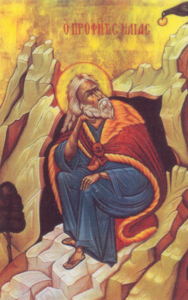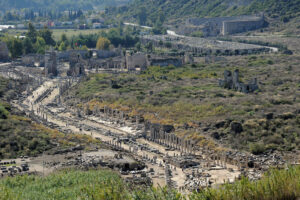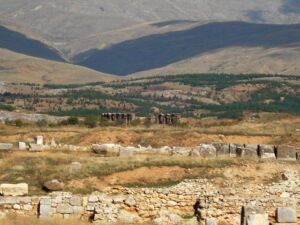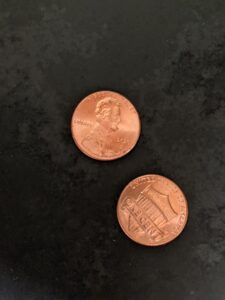Recognizing and Responding to the Imperishable Spirit
 “Your imperishable spirit is in all things!”
“Your imperishable spirit is in all things!”
A grain of sand, a drop of dew, a spider’s web, a mighty redwood tree, a blade of grass, a thunder cloud, a little child – all are created by God and all bear within them the Lord’s imperishable spirit. All of creation is poured forth, bursting out through the dance of love that is our God. Everything carries a bit of that energy of love that brought it into being.
We stand in awe of the wonders of the earth as we pause at the edge of the ocean just before a storm, or on the rim of the Grand Canyon, or walk amid the redwoods in California. We marvel at the wonder of a newborn baby, with such tiny fingernails and ears. We rejoice as new life sprouts from the earth when the seasons change and rains come to water the ground. We stand in silence as we contemplate the passing of those we love from this life to the next.
The world is full of mystery and that mystery is filled with the presence of an imperishable spirit.
It’s no wonder, then, that peoples around the world have recognized this presence. Most, if not all, peoples historically have told stories of how things came to be, why things don’t always go right at first, how important it is to respect and care for the life around us. Religious myths and rituals abound, giving expression to this sense of the closeness and immanence of the creating spirit. In some of these, the spirit is benevolent. In some the spirit is spiteful. In some the spirit(s) behave very much like humans do.
In our Judeo-Christian tradition, the One who is our creator is infinitely creative, loving, forgiving, patient, persistent, and inventive. In the Book of Wisdom (Wis 11:22-12:2), we hear of the impressive power and might of the Lord, as well as his unlimited love and compassion. “You have mercy on all, because you can do all things; and you overlook people’s sins that they may repent.” The Lord loves all things – we know this because he would not have created anything he didn’t love. Nothing is hated, all is preserved, because all belong to the Lord.
So, what does the Lord do if part of creation doesn’t want to behave in a loving, responsible manner? How does the Lord deal with all of us humans, who so often have our own ideas of what we want to do and let our emotions rule our actions far too often? Like a patient parent. Little by little. With stories and humor. By letting us experience the consequences of a wrong choice and being there waiting with a big hug when we come racing back to the safety of Mom or Dad’s arms. By playing peek-a-boo with us, popping out around door frames, or into rooms, or out from under a table – figuratively – catching us off guard and helping us laugh as we recognize his presence once again.
As the wise one wrote, “… you rebuke offenders little by little, warn them and remind them of the sins they are committing, that they may abandon their wickedness and believe in you, O Lord!”
It was true in ancient times and remains true today.
St. Luke gives us an example of the way God works with all of us. (Lk 19:1-10) Jesus was traveling up to Jerusalem. (Jerusalem is on a mountain, so no matter from which geographic direction one approaches, one must go up to Jerusalem.) This time, he was coming through lands we now know as the West Bank of the Jordan River, east of Jerusalem, passing through the city of Jericho. The road was part of an important trade route that was well-traveled – not always in complete safety.
Jesus planned to continue his journey through Jericho and stop at another place closer to Jerusalem. Crowds of people gathered to see him. His reputation as a healer and worker of miracles preceded him.
One of the residents of Jericho was named Zacchaeus. Zacchaeus was the chief tax collector in the region. He supervised the other tax collectors who worked in the city and surrounding regions. As was the common rule, he was allowed to demand as much as he could get over and above the quota of taxes he had to send to his superiors in Jerusalem. Accordingly, he demanded that those under his leadership send more than he was required to collect. They too were allowed to collect more than they had to send to him. It was what we would see as a totally corrupt system. They took it for granted as just the way things were done. For the Romans, it was a way to get revenue collected by local people without having to send folks out from the comfort of Rome.
Zacchaeus was a short man. He wanted to see Jesus too, but you can be pretty sure that no one willingly moved aside so he could get to the front of the crowd and watch. He was stuck back behind, where he hadn’t a chance of seeing this famous man who was passing through town.
Then he noticed a sycamore tree along the road up ahead. Sycamores were common trees in the area, providing fruit and shade in a hot land. Racing ahead of the crowd, he climbed the tree, so he could have a good view.
When Jesus got to the tree, he called out, “Zacchaeus, come down quickly, for today I must stay at your house.” This was totally unexpected. Zacchaeus quickly came out of the tree and greeted Jesus with joy. Bystanders were totally upset by Jesus’ action. “He has gone to stay at the house of a sinner.” This was the worst kind of accusation. Staying in the home of a sinner tainted the guest with the guilt of the sinner. How could Jesus do such a thing? Didn’t he know better? Did he really know who this man was?
But Zacchaeus responded in a way no one in the crowd expected. He stood before the Lord and made a promise of restoration and justice – “Half of my possessions, Lord, I shall give to the poor, and if I have extorted anything from anyone I shall repay it four times over.” This was more than anyone might ever have expected. Four times more returned than stolen? Half of his considerable wealth given away?
Zacchaeus had become a wealthy man because of the extortion of extra tax money from his neighbors. He certainly had invested it again and again as he grew in wealth. To give away even more than he had taken was a recognition that the harm he had done was not measured only in the money taken. It also had to be measured in the suffering inflicted.
Jesus responded, “Today salvation has come to this house… the Son of Man has come to seek and to save what was lost.” The Lord doesn’t give up on anyone. He keeps reaching out until we respond in love too.
St. Paul reminds the people of Thessalonica and us that he always prays for us, that we may be worthy of the Lord’s calling and faithful in all our endeavors, so that Jesus may be glorified in us and we in him. This is the will and gift of Jesus for us. (2 Thes 1:11-2:2)
Rumors of the coming of the last days were spreading (as they sometimes do today as well) and upsetting the community there. Paul told all of us that we are not to worry about when and whether the end of days is upon us. We are not to fret about rumors of terrible things to come. We are instead to focus on living in faith.
“Before the Lord, the whole universe is as a grain from a balance or a drop of morning dew…” Wisdom again.
We are important because we are part of this wonderful creation that is filled with the imperishable spirit that is in all things and brings all into being. We are conscious of our existence and able to choose how we respond. Recognizing this special quality shared with us, the Lord comes in great patience and love, teaching us bit by bit, and leading us to believe and follow him in love.
We are so blessed to be part of this wonderful world. May our eyes be opened each day to see the beauty of God peeking forth from all around us, embracing us and healing us, so we will be ready when it comes time to meet face to face, to run into the loving arms that await us.
Readings for the Thirty-first Sunday in Ordinary Time
Read More



































